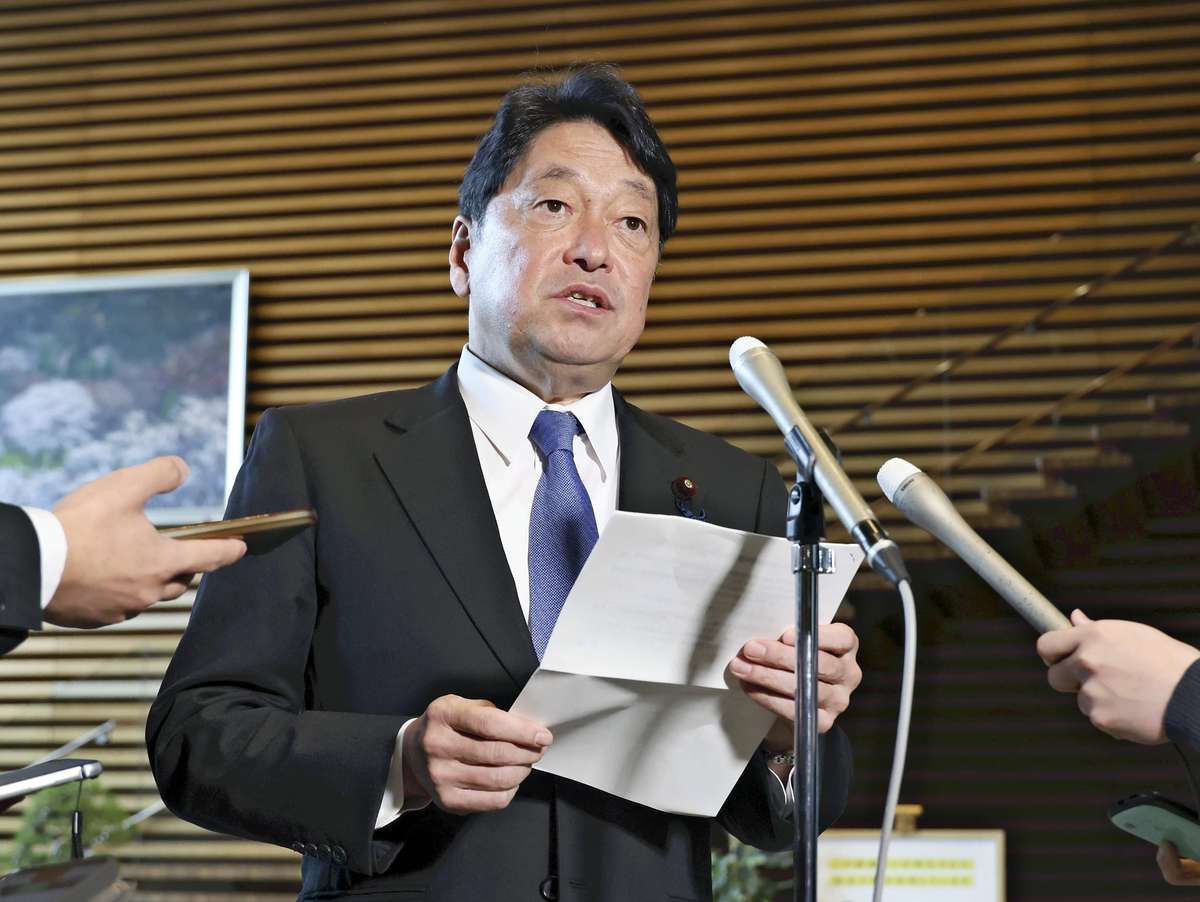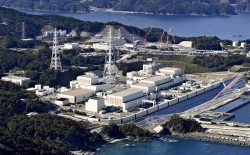Ishiba Administration Prepares for Japan-U.S. Phone Talks; Govt Girds for Long Haul over Trump Tariffs

LDP Policy Research Council chairperson Itsunori Onodera speaks to reporters.
15:35 JST, April 6, 2025
The Japanese government is accelerating preparations for bilateral telephone talks between Prime Minister Shigeru Ishiba and U.S. President Donald Trump. As it will not be easy to win concessions from the U.S. administration, Japan is preparing for the long haul.
Ishiba met with Chief Cabinet Secretary Yoshimasa Hayashi, Finance Minister Katsunobu Kato and economic revitalization minister Ryosei Akazawa at the prime minister’s official residence on Sunday evening to discuss how to respond to Trump’s tariff measures. Following the meeting, Kato told reporters, “I was instructed to take appropriate measures in cooperation with the ministers concerned, as there are signs of instability in the financial markets.”
The government will focus on the Japan-U.S. telephone talks with Trump for the time being. Japan is expected to push for a review of measures by offering a list for deals, with investment projects such as liquefied natural gas (LNG) development in Alaska, or a revision of Japan’s nontariff barriers that would encourage U.S. companies to export to Japan, as specific bargaining chips.
Still, the success or failure of the talks remains to be seen. Itsunori Onodera, chairperson of Liberal Democratic Party’s Policy Research Council, emphasized the need for a focused approach when speaking to reporters on Sunday, saying, “first, it is important to grasp what the U.S. side is seeking and to get a clue to negotiations.”
However, there is not much time left before this summer’s Upper House election for the Ishiba administration, which is suffering from a declining approval rating. Some in the party have suggested that the telephone talks phase is already over and that it would be better for the prime minister to visit the United States as soon as possible.
The government’s negotiations with the United States are still unclear, which is also causing the corporate sector to struggle to respond to the situation. Among major automakers, Toyota Motor Corp. plans not to raise its sales prices in the United States for the time being to protect its production scale and employment in Japan. However, an executive at another major auto company indicated that the firm is considering raising prices and said, “It is impossible to cover the entire cost [of the tariffs].”
While there are ways to avoid the tariffs such as by relocating production to the United States, the impact on domestic parts manufacturers with whom they do business would be significant.
“I’m very afraid that Japanese manufacturing will be hollowed out,” said Takashi Kayamoto, CEO of NHK Spring Co. and chairman of the Japan Auto Parts Industries Association, on Friday. “Once [technology and supply networks are] lost, it will be difficult to regain them.”
Related Tags
Top Articles in Politics
-

Japan PM Takaichi’s Cabinet Resigns en Masse
-

Sanae Takaichi Elected 105th Prime Minister of Japan; Keeps All Cabinet Appointees from Previous Term
-

Japan’s Govt to Submit Road Map for Growth Strategy in March, PM Takaichi to Announce in Upcoming Policy Speech
-

LDP Wins Historic Landslide Victory
-

LDP Wins Landslide Victory, Secures Single-party Majority; Ruling Coalition with JIP Poised to Secure Over 300 seats (UPDATE 1)
JN ACCESS RANKING
-

Japan PM Takaichi’s Cabinet Resigns en Masse
-

Japan Institute to Use Domestic Commercial Optical Lattice Clock to Set Japan Standard Time
-

Israeli Ambassador to Japan Speaks about Japan’s Role in the Reconstruction of Gaza
-

Man Infected with Measles Reportedly Dined at Restaurant in Tokyo Station
-

Man Infected with Measles May Have Come in Contact with Many People in Tokyo, Went to Store, Restaurant Around When Symptoms Emerged


















